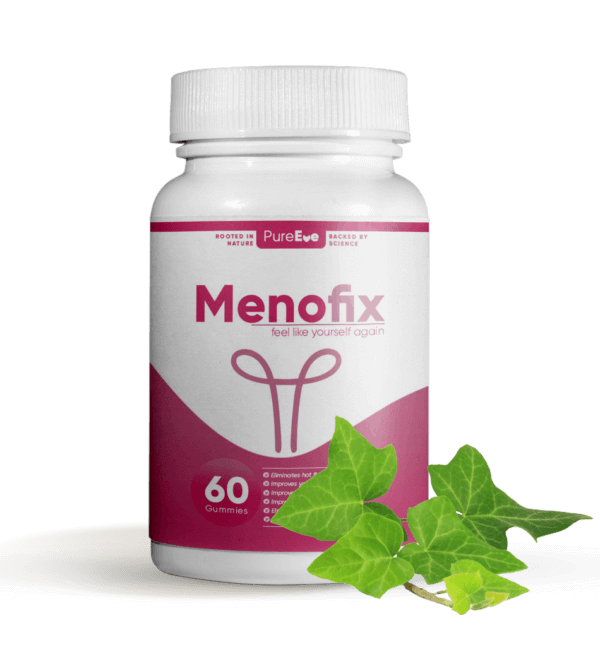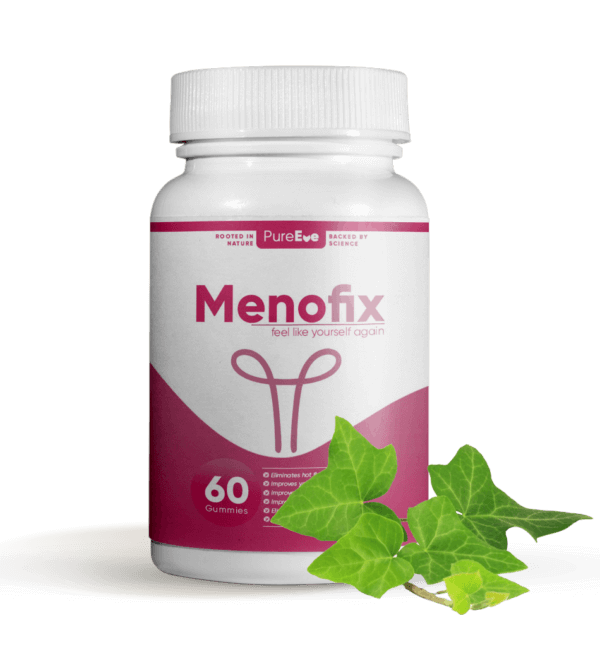Are you aware that there are local foods that can help Nigerian women balance their hormone? Probably, you don’t know.
Hormonal imbalance is a health challenge you won’t wish on anyone. It’s one condition that can cause chaos in a woman’s body, mood, and even confidence.
From unpredictable periods to sudden weight gain, acne outbreaks, low libido, infertility struggles, constant fatigue, and anxiety; hormonal imbalance doesn’t just mess with your body; it can mess with your life.
Luckily for us in Nigeria, we don’t need to look too far or spend big money on foreign foods. Our local markets are filled with nutrient-rich options that can support hormone health naturally.
In this article, we will explain some of the best local Nigerian foods that can help Nigerian women balance their hormone.
What Is Hormonal Imbalance?
Hormones are your body’s chemical messengers. They’re produced in the endocrine glands and released into the bloodstream to help control major bodily functions like metabolism to sleep, reproduction, mood, and more.
For women, key hormones include estrogen, progesterone, testosterone (yes, even women have it), insulin, and thyroid hormones. When they’re in balance, life feels easier. But when they’re not, that’s when there’s a problem.
What is Hormonal Imbalance?
Hormonal imbalance means having too much or too little of a hormone in the bloodstream. And even tiny changes can cause major symptoms.
In Nigeria, many women silently struggle with symptoms of hormonal imbalance but brush it off as stress or “just how the body is.”
Many Nigerian women experience hormonal imbalance between ages 18 to 45. Unfortunately, a study published in the Research Journal of Obstetrics and Gynaecology showed that over many infertility cases in Nigerian women are linked to hormonal issues.
Common causes of hormonal imbalance include:
- Poor nutrition
- Chronic stress
- Sedentary lifestyle
- Exposure to toxins
- Menopause or perimenopause
- Polycystic Ovary Syndrome (PCOS)
- Underlying thyroid issues
Although medical treatments can help in balancing out hormones, they can be expensive and come with side effects.
What if we told you that some of the most effective ways to support your hormones might be right in your kitchen, or at your local market?
Several studies now highlight diet as one of the most effective lifestyle changes to correct hormone-related disorders globally.
Also Read: Do You Pee Often? You Might Be Approaching Menopause, But We Can Help
Best Local Foods that Support Hormone Balance in Nigerian Women
Let’s find out some of the best local Nigerian foods that support hormone balance.
1. Unripe Plantain
Let’s start with unripe plantain. You know that thing that happens when you peel and cook unripe plantain? It becomes slightly sticky and firm. It’s not the sweetest meal, but your body thanks you for it.
Unripe plantain is rich in resistant starch and dietary fiber. These two components help with blood sugar regulation, and that’s key because fluctuating blood sugar can lead to insulin resistance which is a major contributor to hormonal imbalance.
Magnesium, also found in unripe plantain, plays a big role in regulating cortisol levels (your stress hormone) and helps maintain healthy estrogen levels. The potassium content also supports heart health and fluid balance.
2. Ugu and Other Left Green Leaves
Every Nigerian woman needs Ugu in her life, not just for blood-building, but for hormonal balance.
Ugu leaves and other green leaves are a superfood packed with iron, folate, vitamins A and C, and antioxidants. These nutrients support the production of healthy red blood cells, reduce oxidative stress, and most importantly, help balance estrogen levels.
Estrogen dominance (too much estrogen compared to progesterone) is a major issue in many women today. Ugu helps combat that by providing essential nutrients that support liver function, since the liver is responsible for metabolizing excess estrogen in the body.
3. Ofada Rice (Local Brown Rice)
Unlike polished white rice, Ofada rice is less processed and loaded with fiber, B vitamins, and essential minerals. The B vitamins, especially B6 and B12, are important for hormonal balance. They help regulate mood, energy production, and estrogen metabolism.
The fiber content in Ofada rice also supports gut health. Why is this important? Because a healthy gut helps your body get rid of excess estrogen, keeping your hormones in balance.
Studies show that women with a healthy gut microbiome have fewer symptoms of hormonal imbalance like bloating, PMS, and skin breakouts.
4. Avocado Pear
This delicious and nutrient-dense fruit is packed with healthy fats, especially monounsaturated fats, which are vital for hormone production.
Hormones like estrogen and progesterone, and are made from cholesterol and fat. So if you’re on a low-fat diet, your body may struggle to make enough hormones.
Avocados are also rich in vitamin E, which improves egg quality and supports fertility. Plus, they contain potassium and folate, which support adrenal health and mood balance.
5. Tigernuts
If you’ve ever had kunu aya, you’re already halfway to hormone balance. Tiger nuts are not nuts, they’re tubers, and they’re rich in magnesium, zinc, and vitamin E.
It also contains natural plant estrogens (phytoestrogens) which can help balance hormones in women who are low in estrogen, especially during perimenopause or after childbirth. They also help regulate menstrual cycles, improve libido, and promote fertility in both men and women.
Vitamin E in tiger nuts is especially powerful. It acts as a natural antioxidant, protects cells from oxidative stress, and supports the adrenal glands which manage stress and hormone production.
6. Okra (Lady’s Finger)
Okra is a staple in many Nigerian homes, and for good reason. It contains vitamin C, folate, and fiber, and also has mucilage which is a sticky substance that promotes gut health and helps cleanse the digestive tract.
The folate in okra is crucial for women trying to conceive and those looking to regulate their menstrual cycle.
Okra also helps keep blood sugar stable, which is important for reducing insulin spikes that can throw hormones off balance.
7. Eggs
Eggs are a complete protein and contain almost every vitamin except vitamin C. They’re especially high in choline, vitamin D, selenium, and B vitamins, all of which are critical for hormone regulation.
Vitamin D, for instance, plays a role in menstrual regularity and can help reduce symptoms of PCOS (Polycystic Ovary Syndrome). And yes, vitamin D deficiency is common in Nigerian women who stay indoors most of the time.
Boiled or scrambled, adding 1–2 eggs to your daily meals can support ovulation, fertility, and energy levels.
8. Fonio (Acha)
This ancient grain is a powerhouse of nutrients that support hormonal balance. Fonio is gluten-free, rich in iron, magnesium, zinc, and amino acids like methionine and cysteine, which help detoxify the liver and improve metabolism.
Unlike refined grains like white rice or white bread, fonio doesn’t spike your blood sugar, and it helps your body maintain a healthy weight and cycle.
If it’s possible for you, use fonio in place of rice or blend it into swallow for soup.
9. Beans (Any Variety)
Black-eyed peas, brown beans, or white beans, whatever kind you prefer, they’re all good sources of plant-based protein, fiber, iron, and complex carbs.
Beans help stabilize blood sugar, reduce cravings, and prevent the kind of insulin spikes that mess with your hormonal balance. Plus, they help flush out excess estrogen through digestion.
Pairing beans with unripe plantain is one of the most hormone-friendly Nigerian meals you can have. Nigerian women who wish to balance their hormone using local foods should start taking this combo.
10. Fermented Foods (Ogi, Iru, Nunu)
Did you know that over 70% of your immune system and a big chunk of your hormone-regulating systems are connected to your gut? Fermented foods like Ogi (fermented maize pap), nunu (local yogurt), and even Iru support the gut microbiome.
A healthy gut microbiome helps in processing and eliminating excess estrogen. Without this balance, you may experience bloating, acne, or mood swings.
Fermented foods also contain probiotics, which are friendly bacteria that support immunity, digestion, and you guessed it, hormone regulation.
Also Read: When Does Menopause Start for Women in Nigeria
Bonus: Drink More Water and Cut Down on Sugar
This isn’t a food per se, but no hormonal healing journey is complete without this step.
Water helps the kidneys and liver flush out waste, including excess hormones. On the other hand, sugar causes insulin resistance, which throws other hormones off balance. So drink water and ditch the soda.
Is Food Enough? What About Supplements?
Now, food alone might not be enough. While eating these local foods will set a strong foundation for hormonal health, sometimes your body needs an extra push, especially when the imbalance has gone on for a while.
That’s where Menofix comes in. Menofix is a natural, herbal remedy specifically designed for Nigerian women battling hormonal imbalance.
It doesn’t matter if you’re dealing with hot flashes, vaginal dryness, night sweats, mood swings, or other menopause related symptoms, Menofix can help you.
Menofix works by:
- Regulating estrogen and progesterone levels
- Reducing inflammation and bloating
- Supporting reproductive health
- Boosting energy and mood
Unlike synthetic treatments, Menofix is plant-based and side-effect free, making it a gentle yet powerful companion in your wellness journey.
Note that a combination of a healthy local diet with Menofix and regular physical activity helps in getting the best results.
Final Thoughts
Hormonal imbalance may be common, but it’s not something you have to suffer through endlessly.
If you start eating the right local foods and make a few lifestyle changes, you can regain control of your health and feel like yourself again.
If you’re ready to take your hormone health seriously, start from your kitchen. And let Menofix do the rest.




















